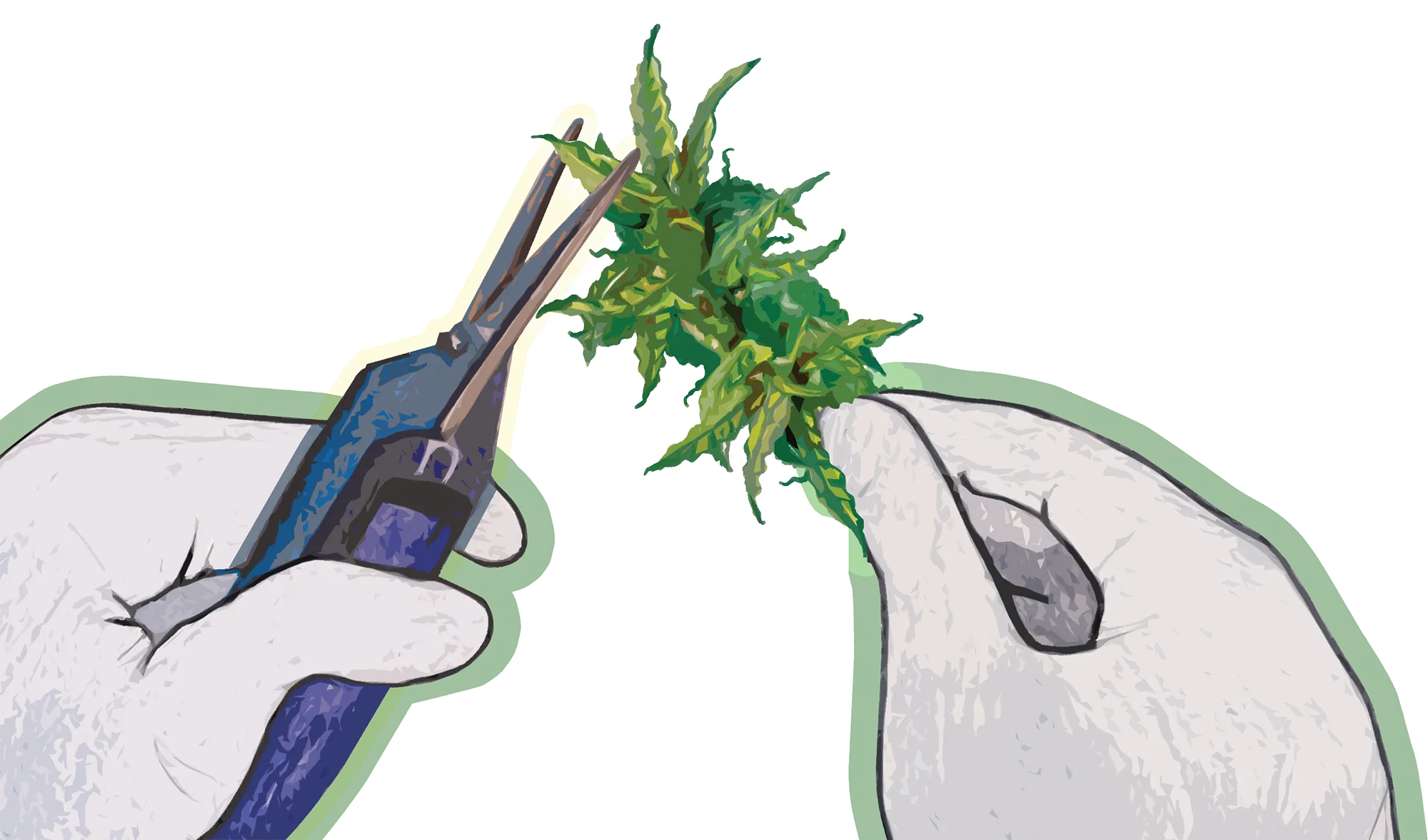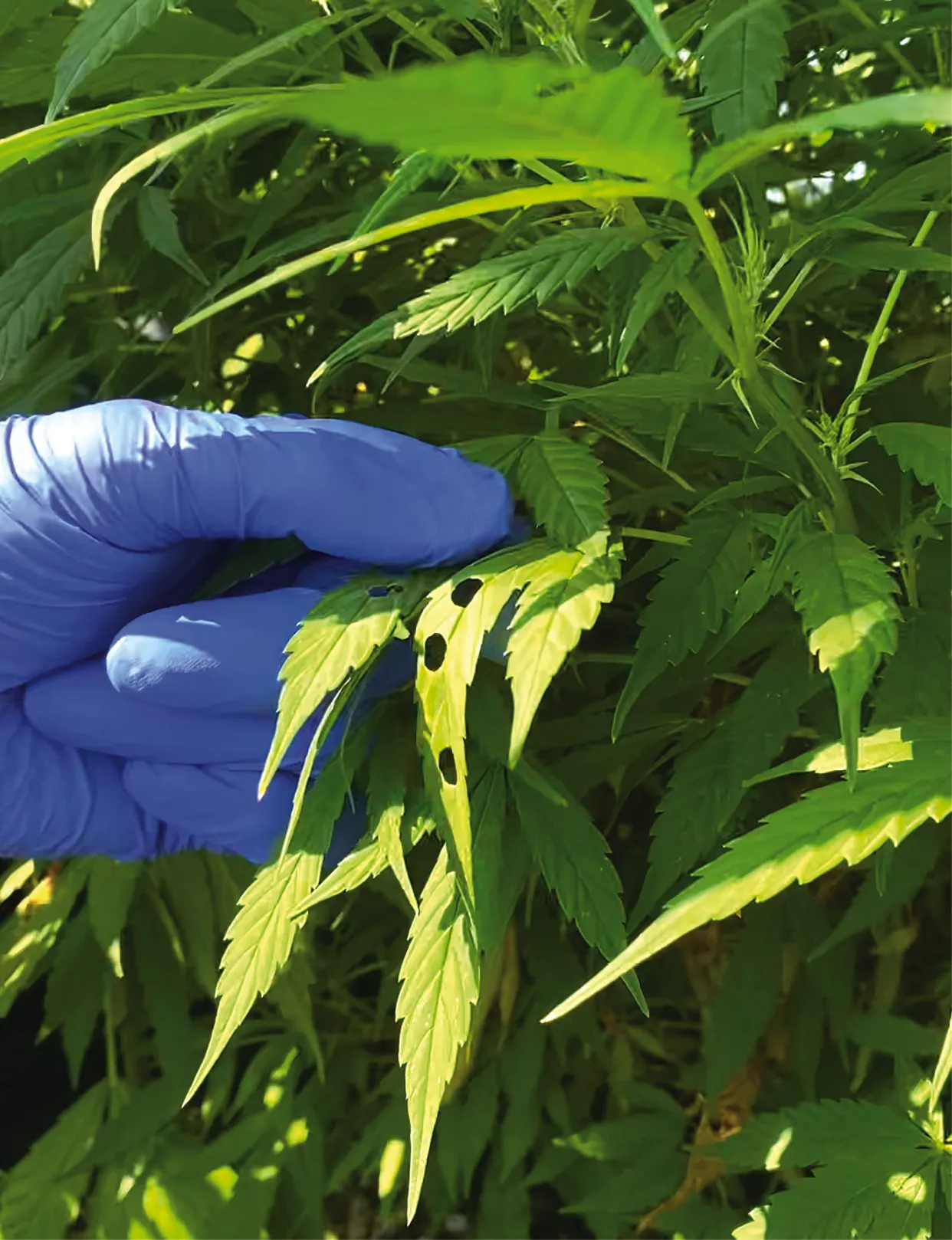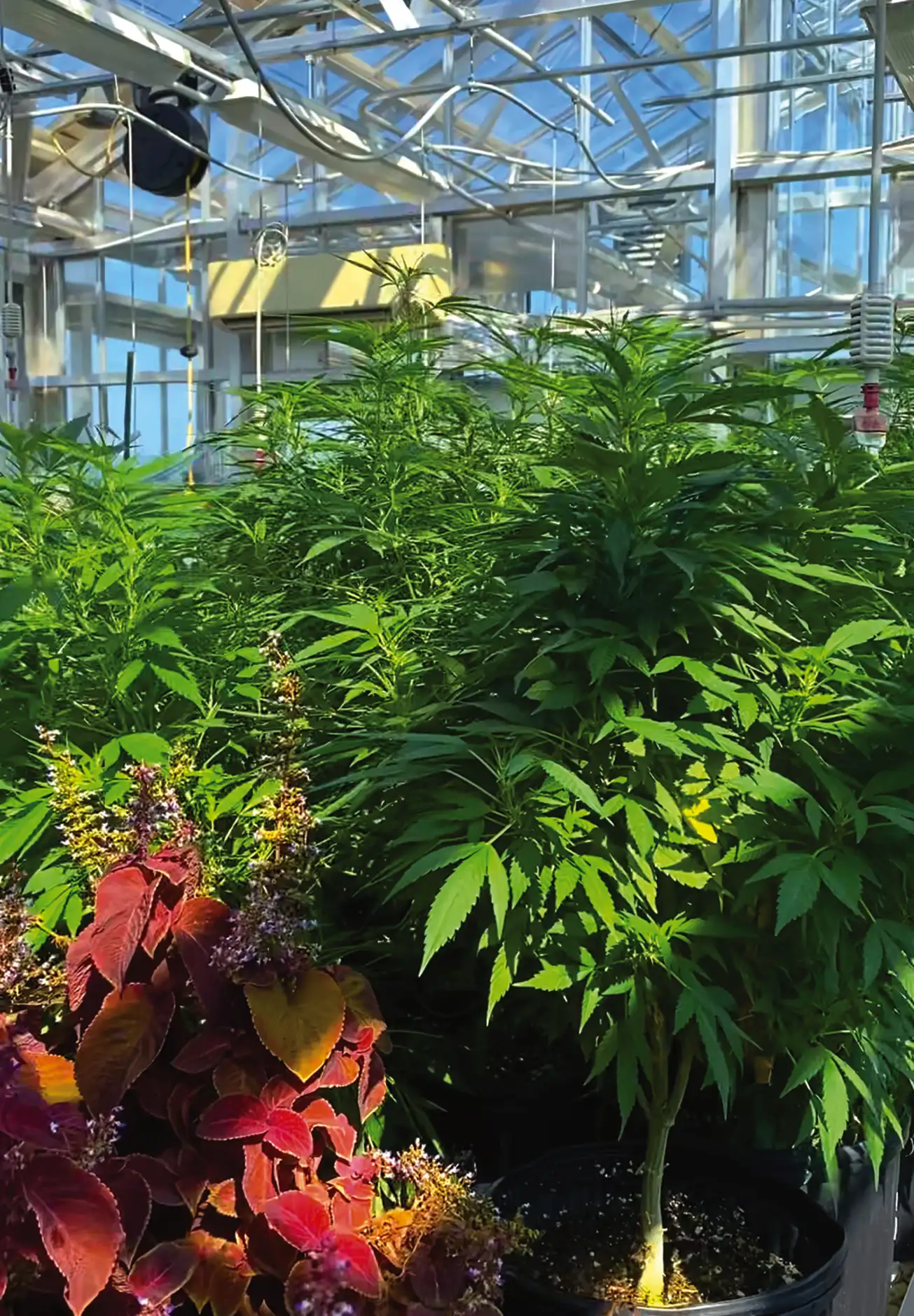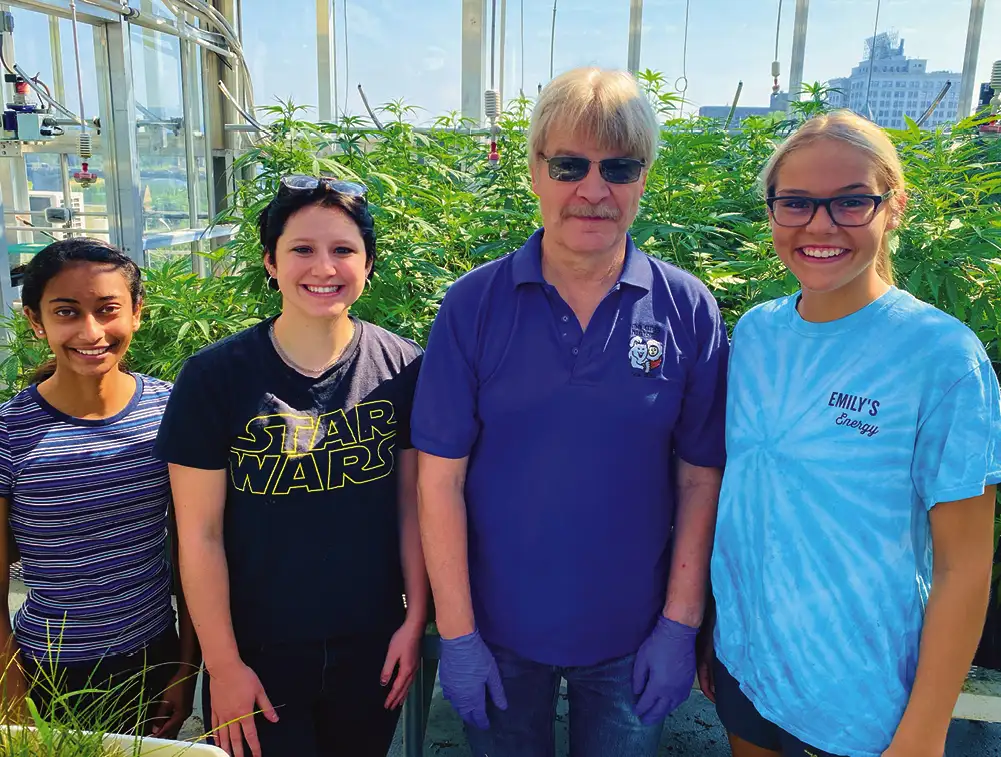Meeting Demands of a Budding Industry With Serious Science

According to reports, officials discovered marijuana plants in an academic facility on campus. They took immediate action, collecting the plants, properly disposing of them in an autoclave and starting the project all over again after filing the necessary crop loss report with the Department of Agriculture.
“We’re not running some type of clandestine operation,” says Will Terzaghi, professor of biology. The Homecoming incident was part of ensuring that Wilkes University’s two hemp farms, numbered 3057 and 3058, remain in compliance with state and federal law. Wilkes holds a permit to grow hemp, but when the tetrahydrocannabinol (THC) in the plants hits 0.3%, the plants are considered medical marijuana and must be destroyed.
For Terzaghi, who’s now considered a licensed hemp farmer, it’s another day at the office. “I’m listed as lead investigator on the research permit,” he says. “That means I’m responsible for all the paperwork.” He’s also responsible for overseeing the research into the biological stressors that impact levels of THC and cannabidiol (CBD), helping to train students for work in the hemp and cannabis industry.
Terzaghi is one of the faculty members vital to the launch of the University’s innovative, cross-disciplinary programs in cannabis chemistry, a bachelor’s degree, and cannabis production and CBD extraction in the form of a certificate. Both the major and certificate program bring together faculty and facilities from the biology, chemistry and pharmacy departments, setting students up for careers in an expanding industry.
The inspiration for the idea hit after Ned Fetcher, coordinator of the Institute for the Environment at Wilkes, overheard a shopper in a grocery store telling the manager his son was going to a university out of state to study agronomy so he could “grow weed.”
Fetcher knew Wilkes had an advantage with the chemists, biologists, plant scientists and pharmacists, plus the greenhouse and growth chambers, to make a cannabis program possible. “There aren’t too many schools in that position, certainly not in northeastern Pennsylvania,” says Fetcher. He emailed some faculty members to get the conversation started, in addition to reaching out to cannabis industry professionals. “It’s been a really great collaborative experience,” says Marie Roke-Thomas, associate professor of pharmaceutical sciences who oversees the certificate program.
That interdisciplinary collaboration offers a huge advantage for students, says Adam VanWert, associate professor of pharmacology and toxicology, who was involved in the program’s planning stages. “This synergistic relationship between the departments allows us to develop meaningful projects for students. A student or group can work on genetic engineering of hemp, analyze the chemical changes in the plant and determine the pharmacological relevance of this, all in one project.”


Did you know?
- Cannabis grows on every continent except Antarctica.
- Hops, used to make beer, is cannabis’s closest relative, but it does not produce cannabinoids.
- Hemp seeds are nutritious. They’re a great source of fiber.
- The smell often associated with cannabis does not come from CBD or THC, but from terpenes in the plant. Terpenes also occur in pine trees and citrus fruits.
- George Washington, the first US president, grew hemp at Mount Vernon.
After meeting every two weeks for a year, the unofficial cannabis program task force created business plans and submitted the paperwork for the bachelor of science and the 16-credit certificate to the University’s Academic Planning Committee for review and approval.
Terzaghi filed the paperwork with the U.S. and PA Departments of Agriculture to legally grow hemp and received the research permits in spring of 2021. Roke-Thomas secured a $350,000 Local Share Account Grant to purchase high-tech research equipment and enhance existing facilities. Jason Holly, president of Hempsylvania, gave Wilkes the seeds to start the hemp plants in the greenhouse. With all the pieces in place, the cannabis chemistry program officially launched in the fall 2022 semester.
Of course, the faculty involved with cannabis chemistry have all heard the jokes. They’ve even made some themselves. Wilkes is contributing to a growing industry. The University has high hopes for the success of the program.
For Esther Orlando, a junior biology major and chemistry minor on the pre-med track, her work as part of the team conducting research with the hemp plants this summer was no laughing matter. She and seven other students put in full days getting their hands dirty growing hemp plants from seeds, repotting plants, treating spider mite issues, and even developing male plants from the all-female crop so the team could harvest their own seeds. “My peers all seemed intrigued by the program,” Orlando says. “The jokes mostly come from my parents.”
CBD and THC
The human body’s chemical messenger system, the endocannabinoid system (ECS), contains cannabinoid receptors which help regulate a variety of functions including mood, appetite and feelings of inflammation and pain. CBD and THC impact the receptors in the ECS in different ways.
THC is the compound in marijuana that produces psychoactive effects. It can produce feelings of relaxation or euphoria, giving users a high. Potential side effects include sleepiness, difficulty concentrating and memory loss. Large or potent doses may cause hallucinations or psychosis.
CBD has anti-anxiety and anti-psychoactive properties, but does not produce the high associated with marijuana. Products containing CBD are marketed to treat a variety of issues including pain, PTSD, anxiety and depression, as well as symptoms of diseases including epilepsy, ALS and Parkinson’s.
One part of the research at Wilkes involves finding a way to increase the CBD in hemp without increasing the THC.

The major provides students with a solid chemistry background plus a focus on the needs of the cannabis industry. “The goal is to produce analytical chemists with a plant background to produce known, safe products,” says Mencer.
The certificate program targets current pharmacy, biology and chemistry students, as well as those currently employed in the industry who want to advance their career prospects with cannabis expertise. “It’s all an effort to legitimize the industry in Pennsylvania. The graduates we put out will know a little bit about everything,” says Roke-Thomas.
With enhancing product safety as a primary goal, helping to ease the stigma surrounding cannabis isn’t far behind. The plant has been cultivated for roughly 5,000 years and people first used cannabis for its hallucinogenic properties about 3,000 years ago. Hemp was one of the most widely grown crops in the U.S. in the 1800s, with its strong fibers used for making rope, ship sails, and building materials.
Cannabis was used for medicinal purposes in the 19th century, before states started to outlaw the product, followed by a federal ban in 1937. The plant was also associated with the hippie counterculture of the 60s and 70s.

Why Wilkes and why now?
“We’re trying to get past that stigma. It’s not just about recreation. It’s about science, medicine and proper use of these products,” says Mencer. “As the stigma is removed, more people have been willing to ask their doctors for prescriptions.”
With state laws and public perceptions changing and the potential for new federal legislation on the horizon, the cannabis chemistry major and cannabis production and CBD extraction certificate prepare students for high-paying jobs promoting standards and safety. Wilkes graduates will be ready for serious business in this cutting-edge industry with enormous potential. That’s no joke.